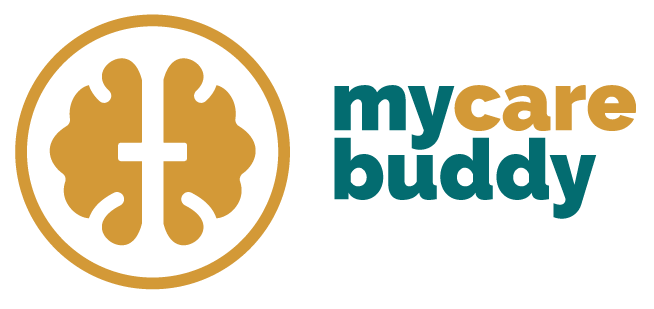5 Effective Ways You Can Manage Stress as a Working Nigerian Student
Student life can be very hectic especially as a student who has to learn how to strike a balance between academic life and social life. It is even more overwhelming if you are working and studying at the same time.
In this blog post, you will learn 5 effective ways you can handle stress as a working Nigerian student.
1. Daily Goal Setting: This is an effective way to manage and reduce stress as a working Nigeria student. By listing out your goals for the day, you are able to focus more, manage your time and handle your school responsibilities and work duties better.
How to Set Daily Goals:
- Get a journal.
- Identify your priorities.
- Set specific and realistic goals.
- Allocate time for carrying out those goals.
- Stay consistent.
- Be flexible and willing to adjust when the need arises.
2. Quality Sleep: Sleeping well is another effective way of handling stress from working and studying at the same time. Getting enough quality sleep helps you to concentrate, energizes you and improves your mood. However, not getting enough sleep will not only affect you physically but mentally, ultimately leaving you more stressed out.
How to ensure you sleep better:
- Create a sleep routine or schedule.
- Limit the use of your phone at night.
- Invest in budget-friendly yet quality mattress and pillows.
- Reduce noise/sounds during bedtime.
Some of them include:
- Going for morning/evening walks.
- Taking the stairs.
- Stretching during study/work breaks.
- Riding/Walking to work or classes.
4. Balanced Diet: Eating regular balanced meals will help you to work better and concentrate. It will also energize you and reduce your stress levels. Unfortunately, many Nigerian students prefer to eat junk foods or do not make time to eat enough.
To maintain a balanced diet:
- Eat more vegetables and fruits.
- Drink water regularly.
- Reduce the amount of junk food you eat.
5. Seeking Professional Support and Counseling: It can very overwhelming trying to handle school life and work as well. Therefore, it is good to meet with counsellors and therapists where you can pour out your feelings and emotions and get encouragements and directions on how to cope.
Here are 3 things you must consider when choosing a therapist/counsellor:
- Are they licensed/accredited professionals?
- Do they allow flexible therapy options like online therapy?
- Is it affordable?
Conclusion
Handling your school life alongside trying to make ends meet can place a lot of burden on your mental state and leave you stressed out. But through daily goal setting, regular exercise, quality sleep, healthy eating and seeking professional support, you will be more equipped to manage and reduce those pressures.
Understanding Mental Health Challenges Across Different Groups
status. In this article, we explore the unique mental health challenges faced by specific groups, shedding light on the significance of awareness, understanding, and support.
Children navigate a complex world filled with new experiences, challenges, and emotions. Although childhood is often seen as carefree, many young ones encounter mental health difficulties that require attention and support. From anxiety and depression
to behavioral disorders, children face a range of problems that can impact their emotional and psychological well-being. Factors such as family dynamics, academic pressure, bullying, change, and societal expectations can exacerbate these issues. Early intervention, open communication, and access to mental health resources are crucial in supporting the mental well-being of children. Mycarebuddy for kids provides the ideal environment to cater to your kids' mental health needs.
As students transition from adolescence to adulthood, they have to cope with academic pressures, social dynamics, and personal growth. Unfortunately, stress, anxiety, and depression have become prevalent among students, and these issues are fueled by factors like academic competition, financial strain, peer pressure, and societal expectations.
Balancing coursework, extracurricular activities, and social life can take a toll on students' mental health, leading to burnout and feelings of inadequacy. To support the well-being of students, we need to promote a culture of self-care, reduce stigma surrounding mental health issues, and provide accessible mental health services on campuses.
The modern workplace can be stressful for employees who have to navigate high- pressure environments, demanding deadlines, and interpersonal dynamics. As a result, work-related stress, burnout, and job insecurity contribute significantly to mental health
issues among workers. Unfortunately, the stigma surrounding mental health in the workplace often discourages employees from seeking help, leading to prolonged suffering and decreased productivity. Employers must, therefore, foster a supportive
work culture, implement stress management programs, and provide access to mental health resources to promote mental well-being. Our website, Mycarebuddy offers mental health resources for workers to help them achieve top productivity levels.
Relationships are essential, yet they can also be a source of significant stress and strain, particularly for couples facing mental health challenges. Communication breakdown, unresolved conflicts, and external stressors can impact the emotional well-being of partners, leading to feelings of isolation and resentment. Mental health issues within relationships often require open dialogue, empathy, and professional intervention to navigate effectively. Our Couples therapy, support groups, and healthy coping
mechanisms at Mycarebuddy can help strengthen relationships and promote mutual well- being.
Motherhood is a powerful journey that brings immense joy. However, it can also lead to significant mental health challenges, especially for new mothers. These challenges may include postpartum depression, anxiety, and adjustment disorders. New moms navigate through hormonal changes, sleep deprivation, and the pressures of caregiving. They also face the societal expectation of maternal perfectionism and the pressure to "bounce back", which can exacerbate these challenges and leave them feeling overwhelmed and isolated. To help new mothers prioritize their mental well-being, it's crucial to have peer support networks,
counselling services, and maternal mental health initiatives available. Mycarebuddy’s New Mom Meal Plan is an excellent initiative that provides proper dieting, which is crucial for new moms.
relationships often require open dialogue, empathy, and professional intervention to
navigate effectively. Our Couples therapy, support groups, and healthy coping
mechanisms at Mycarebuddy can help strengthen relationships and promote mutual well-
being.
5. New Moms:
Motherhood is a powerful journey that brings immense joy. However, it can also lead to
significant mental health challenges, especially for new mothers. These challenges may
include postpartum depression, anxiety, and adjustment disorders. New moms navigate
through hormonal changes, sleep deprivation, and the pressures of caregiving. They also face
the societal expectation of maternal perfectionism and the pressure to "bounce back", which
can exacerbate these challenges and leave them feeling overwhelmed and isolated. To help
new mothers prioritize their mental well-being, it's crucial to have peer support networks,
counselling services, and maternal mental health initiatives available. Mycarebuddy’s New
Mom Meal Plan is an excellent initiative that provides proper dieting, which is crucial for
new moms.
It's important to understand that mental health challenges can affect individuals at various
stages of life and circumstances. When we understand the unique struggles faced by different
groups, we can foster empathy, reduce stigma, and promote a culture of support and
acceptance. Therefore, it's essential to prioritize mental health awareness, access to resources,
and community-based initiatives to ensure that everyone receives the support they need to
thrive mentally and emotionally.
Art Therapy for Mental Wellness
Humans possess an innate ability to be creative. When we can harness this creativity, it has the potential to bring us inner peace and clarity of mind. Art therapy is an effective way of expressing ourselves that blends psychology with creativity, providing an effective means of emotional release, self-discovery, and mental well-being. Some examples of artistic therapeutic outlets include:
1. Art Painting
Painting is a powerful tool for emotional release and self-exploration. Individuals can express their intangible emotions through art by applying colors to a canvas, creating tangible works of art. Each stroke of the brush, whether it's abstract splatters or intricate brushstrokes, carries a narrative, reflecting the artist's journey towards healing and self-discovery. For many, painting offers liberation from the constraints of language, enabling them to express complex emotions that may otherwise remain unspoken.
2. Poetry
Poetry has been revered as a means of self-expression and introspection, thanks to its rhythmic cadence and lyrical beauty. In art therapy, poetry serves as a poignant medium for individuals to articulate their innermost thoughts and feelings with poetic precision. Regardless of the form, whether through free verse or structured poetry, individuals can weave words into verses to craft narratives that capture the essence of their lived experiences. Poetry offers a safe haven, allowing individuals to confront their emotions head-on, transforming chaos into coherence and pain into poetry
3. Writing
Writing is a powerful tool that can help individuals in art therapy to express themselves and transform their experiences. Whether it's in the form of reflective writing, storytelling or journaling, writing provides a platform for people to document their inner worlds, aspirations, and dreams. Through writing, individuals can make sense of their emotions, experiences, and thoughts, and chart a path towards healing and self-discovery. By chronicling their journey on paper, individuals can bear witness to their own resilience and strength, fostering a sense of empowerment and agency in the face of adversity. If you're interested in starting your own mental wellness journey, Mycarebuddy offers affordable mental wellness journals to help you
get started.
Art therapy is a form of therapy that uses various artistic mediums to help individuals achieve better mental health. By encouraging creativity as a way to express and explore themselves, people can navigate the complexities of their inner worlds and find healing, resilience, and empowerment. As we continue to recognize the profound impact of art therapy on mental wellness, let us embrace the power of creativity to catalyze personal growth, transformation, and healing.



